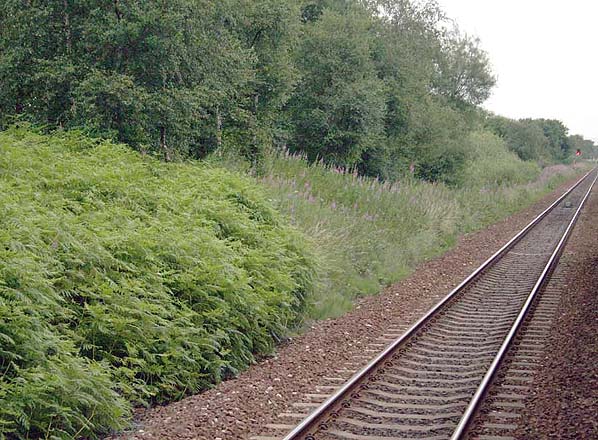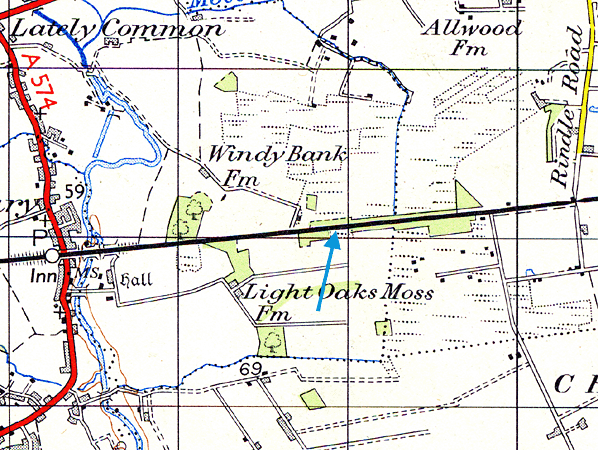|
Notes: Flow Moss was one of the original passenger stations
of George Stephenson's 1830 Liverpool
and Manchester Railway the world's first railway to cater
for passengers as one of its primary functions. It was also
arguably the worlds first inter city railway. When the line
first opened on the 15th September 1830 no details exist of
the initial intermediate stops and Walkers accurate description
of the line at the time of opening says that fares for intermediate
stops had not been settled implying that initially there might
not have been any stops.
The earliest known company timetable is 1st March 1831, this
did not show times at intermediate stops but did list stops
in fare tables. The company minutes of 26th September 1832 did
give a full list but no further list was given until January
1846.
There were many early changes of stopping place and name so
the early history of intermediate stops is patchy. At first
trains stops at, for example, level crossings where the gatekeeper
issued tickets; perhaps a room in his cottage was available
as a shelter. In 1841 platforms and nameboards were added to
stations lacking them. Many of the stations consisted of little
more than a basic cottage.
As a result of several letters from farmers on Chat Moss the
railway built stations at Flow Moss and Lambs Cottage which
opened between November 1832 and September 1838. The company
offered to stop as many passenger trains as were required for
the 'convenience of the public'. In other cases the company
went as far as to cater for individual families.
The station would have been served by local trains running between
the two cities or on shorted journeys. A steady stream of express
and goods services would have passed through. Being located
in an area of sparse population the station was a very early
closure closing in 1842.
Click here
for a detailed history of the Edge Hill cutting and tunnels,
including pictures inside the 1829 Crown Street Tunnel
Further reading: Liverpool & Manchester Railway Operations
1831 - 1845 by Thomas J Donaghy
David & Charles 1972 ISBN 0 71535705 0
To see the other
closed stations on the Liverpool & Manchester Railway click
on the station name: Liverpool
Crown Street, Huyton
Quarry, Lea Green,
Collins Green,
Parkside 1st, Parkside
2nd, Kenyon
Junction, Glazebury
and Bury Lane, Astley,
Lambs Cottage,
Barton Moss 1st,
Barton Moss 2nd,
Weaste, Seedley,
Cross Lane, Ordsall
Lane, Manchester
Liverpool Road
|



 Home Page
Home Page map1.gif)
